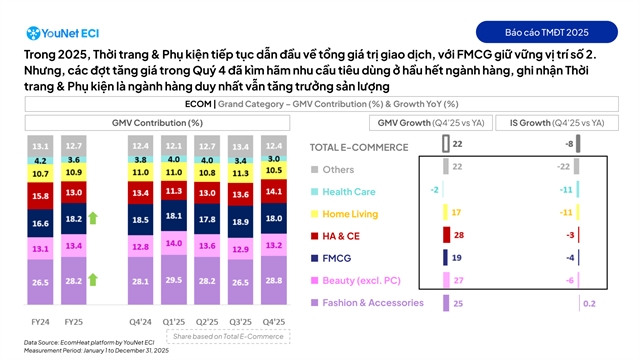 Talk Around Town
Talk Around Town


|
| Illustration by Trịnh Lập |
By An Phương
Fidelity has never been easier to put to the test, as shown in the controversial services on social media in recent times.
It's not difficult nowadays to find fidelity testing services, typically costing up to several million đồng, for lovers or spouses on social media.
Click on "Testing your lover" on TikTok, a series of dramatic stories that seem straight out of a movie will unfold, all garnering millions of views.
Intrigued by this content, my friends and I found us engaged in discussions on this trend.
"I eagerly await the outcome of each test, although it can be disheartening for the person who initiated the session. Witnessing how someone can undergo a rapid change of heart after a few text messages is truly intriguing," said Đan Thanh, 23.
Thanh knew one such service provider and confirmed that the cost of a single “test” ranges from a cup of milk tea to as much as VNĐ2,000,000, depending on the complexity and the amount of time and effort involved.
Typically, basic cases can be completed within one to three days, but some cases may take weeks to months to build trust with the other party.
The process begins with the tester collecting information about the target, often provided by the client, followed by initiating contact through messaging.
The messaging has a range of pretexts, from seeking help with homework or expressing an interest in getting to know someone better, to even buying products online.
The conversation flows like a typical social interaction, gradually transitioning into flirtation, with the crucial question being, "Do you have a boyfriend or girlfriend?” It's the response to this question that holds the key to the client's quest to confirm their partner's faithfulness.
Interestingly, Thanh once used a fidelity test and, fortunately, her boyfriend did not respond to the service provider who had persistently sent messages for a week.
“I gave in to curiosity, even though I knew I shouldn't. Perhaps, the content had just grown on me too much," Thanh admitted, adding that insecurity might have played a significant role in her decision.
I once saw a particularly famous and somewhat notorious case where the service provider even had to help the customer set up a rendezvous with her husband at a hotel for a face-off.
This process often takes months to create a convincing online persona and gather detailed information about the partner's life.
Even though I found that this aspect of the service has stirred considerable controversy, at the same time, videos related to such services have gained immense popularity on social media, racking up millions of views.
According to A.Q., a “fidelity test” service provider, most customers are women aged between 16 and 28 who want to test their male partners.
“Users of this service typically face various barriers, including geographical distance in their relationships, emotional challenges such as jealousy and mistrust, and psychological hurdles such as feelings of unworthiness, body image issues, and family-related concerns,” A.Q. said.
A.Q., who initially started the service for fun, decided to quit after three months, realising that love should not be tested in this way.
My friend Thu Anh, 27, shared her perspective, having experienced a long-distance relationship.
She emphasised that their solution for a strong relationship has always been open and honest communication, acknowledging that difficult moments are part of any relationship.
“It's perfectly normal to shed tears sometimes,” she said.
“The scariest aspect of this service is not about finding the truth about your loved one, but rather the fact that it creates a slippery slope in how we handle relationship issues and our perceptions of relationships,” Anh said.
In my opinion, the popularity of fidelity testing services on platforms like TikTok reflects a deeper societal trend, one of increasing doubt and insecurity in modern relationships.
In an age where relationships are often tested by external influences, from social media to long-distance challenges, it is crucial to remember that love should not be a game of suspicion and deceit.
While we all share a fascination for sensational content, it's clear that paying someone to manipulate conversations in a specific direction is a form of entrapment.
It's even more perplexing when individuals engage in this practice out of curiosity, potentially damaging the trust in their otherwise happy relationships and families.
“This practice is fraught with danger, not only for the subjects being tested, but also for those who perform it. It can lead to constant doubt and mental distress, ultimately affecting the very relationships it aims to scrutinise,” A.Q. said.
“If you're in love, don't risk it,” Anh said sagely. - VNS




